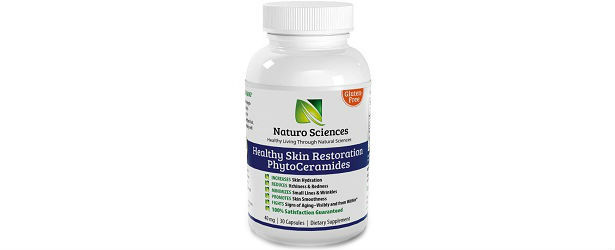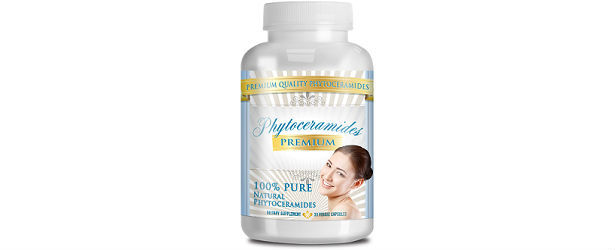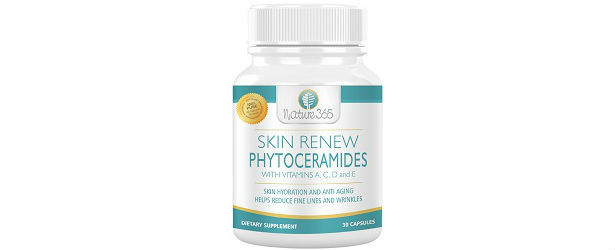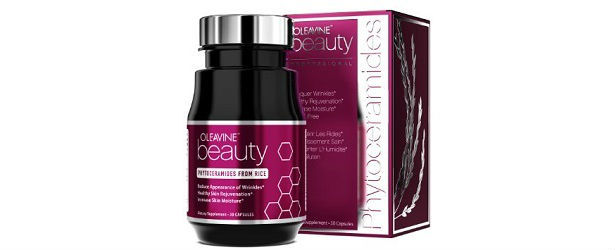
An Introduction To Phytoceramides
Phytoceramides have been making a lot of buzz in the skincare industry lately. Promising to reverse the aging effects on skin, the plant-based ceramides have been labeled ‘miraculous’. Most of us get excited when we hear about a new dietary supplement and its numerous benefits. However, behind all the excitement, there are lots of doubts as well. It is okay to be apprehensive about new drugs and medicament. If you are planning to take phytoceramide, then you should be aware of its pros and cons and properties.
Where Do Phytoceramides Come From?
Phytoceramides are plant-based ceramides supplements taken to prevent the aging of skin. Now you must be wondering what ceramides are. Ceramides are waxy lipid molecules made up of sphingosine and fatty acid. They are largely present in our epidermal layer of skin. Even though we are not aware of it, they do wonders on our faces. They are the reason our skin doesn’t get dehydrated and wrinkly. Ceramides keep the skin smooth and plump by preventing the loss of moisture and acting as a barrier against microorganisms. As we get older, there is a considerable decrease in the number of ceramides which is why our skin gets dry and lined. When our body doesn’t nourish us with ceramides, we turn to synthetic products. Ceramides are typically available in anti-aging cream form.
While they are effective, they are often very expensive or not good enough in quality. Furthermore, most of them are formed from bovine sources. Phytoceramides are not only inexpensive; they are derived from crops and plants.
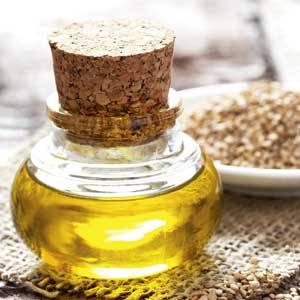 What Do Phytoceramides Contain?
What Do Phytoceramides Contain?
Common ingredients used in phytoceramide supplements are:
- Phytoceramide Complex
- Gelatin
- Rice Bran Oil
- Rosemary Extract
- Plant Sterols
- Vitamin A
- Vitamin C
- Vitamin D
- Vitamin E
Phytoceramide Complex is usually derived from wheat, but for gluten-intolerant people gluten-free supplements made from rice and sweet potatoes are available.
How Much Phytoceramides Are You Supposed To Take?
You can take 350 milligram liquid capsule per day preferably half an hour before meal.
 Adverse Effects Of Phytoceramides
Adverse Effects Of Phytoceramides
Now that you know a little about Phytoceramides, let’s discuss their side effects. Funnily enough, there are hardly any adverse reactions caused by phytoceramides. The supplements have been cleared by Food Administration and Drugs (FDA). They do not contain any toxic substance that can cause harm to the body. Only risks associated with Phytoceramides can occur in people with gluten-sensitivity. In this case, supplements made from wheat should not be taken at all. Pills produced from rice and sweet-potato extracts are good alternatives.
Due to lack of research, Phytoceramides are not advised in pregnancy and breastfeeding.
How Much Does It Cost To Buy Phytoceramides?
They don’t have a fixed price, but if you compare the current prices of supplements with anti-aging creams, Phytoceramides are quite cheap.
Are Manufacturers Offering Any Guarantee?
Only a handful of companies are offering compensation right now.
Should You Take Phytoceramides?
I suggest that you give Phytoceramides a try. They don’t have any negative effects and they are derived from vegan sources. Although clinical trials are insufficient in number, the pills do have the ability to restore skin and prevent further damage.
TOP 5
PHYTOCERAMIDESSupplements |
|||||
| Phytoceramides Premium | Absonutrix | Nutri Vida | Nature365 Skin Renew | BioGanix | |
|---|---|---|---|---|---|
| 1 | 2 | 3 | 4 | 5 | |
| Price (1 bottle) Price (6 bottles) Best Value |
$48.00 $138.00 |
$49.99 $299.94 |
$29.99 $179.94 |
$59.95 $359.70 |
$66.95 $401.70 |
| Overall Rating | 99.40% | 84.10% | 77.80% | 69.10% | 63% |
| Effectiveness |





|





|





|





|





|
| Speed of Results | Extremely Fast | Good | Average | Average | Slow |
| Quality of Ingredients | Premium | Good | Average | Average | Average |
| Customer Satisfaction Evaluation | 99.20% | 82.30% | 75.90% | 66% | 61.60% |
| Safety Evaluation | Safe for Use | Safe for Use | Safe for Use | Safe for Use | Safe for Use |
| Customer Service Rating |





|





|





|





|





|
| Reorder Rate | Highest | Good | Good | Average | Average |
| Return Policy | Risk Free | Risk Free | Unopened Only | No | Yes |
| Success Rate | 99.10% | 82% | 76% | 68.20% | 61% |

 Subscribe Now
Subscribe Now





